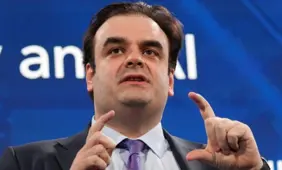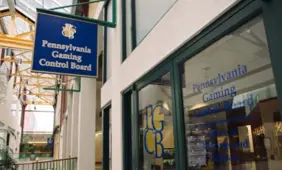Florida Lawmakers Move to Penalise Fixed-Event Wagering
Florida lawmakers have revived legislation that would make wagering on a knowingly fixed sporting event a third-degree felony.

The proposal, House Bill 189, introduced by Republican Representative Dana Trabulsy, would expand criminal liability to include any person who places a bet on a sporting contest – professional or amateur – when they are aware the outcome has been manipulated. The substitute version of the bill, released this week, updates existing statutes that already criminalize bribing athletes or officials to alter the result of a game.
Under the measure, a conviction for knowingly betting on a fixed match would carry the penalties associated with a third-degree felony in Florida, which can include prison time and significant fines. Sponsors say the change is designed to close a perceived loophole and strengthen deterrence at a time when match-fixing and betting-related corruption have resurfaced in public debate following recent criminal charges connected to alleged prop-betting schemes in Major League Baseball.
HB 189 is not an isolated proposal. Lawmakers packaged the anti-fixing language into a broader, near-100-page gambling bill that covers everything from pari‑mutuel racing and fantasy sports to administrative changes at the Florida Gaming Control Commission. The legislative summary says the package “strengthens penalties for illegal gambling, authorizes the operation of fantasy sports contests, clarifies employee prohibitions governing the Florida Gaming Control Commission, revises reporting requirements related to changes in ownership for pari‑mutuel wagering permit holders, and preempts local governments from regulating gaming activities unless expressly provided in Florida law”.
Political reporter Gary Fineout has flagged portions of the fantasy sports sections as potentially controversial, noting there appears to be no explicit carve‑out for small, informal fantasy leagues among friends or coworkers. He also reported the bill will be heard next week, a procedural signal that leadership is fast-tracking the measure through the House.
Beyond criminal provisions for bettors, the substitute would also make it a third-degree felony for any operator to run fantasy contests that hinge on game-level outcomes such as team scores or point spreads in violation of the bill’s conditions. Supporters contend that those restrictions are aimed at protecting game integrity and distinguishing lawful fantasy formats from gambling that mirrors traditional betting markets.
This bill attempts to shore up gaps in our statutes that leave the integrity of sports vulnerable. Prosecuting bettors who knowingly take part in match‑fixing schemes sends a message that the entire ecosystem – players, agents, operators and bettors – can be held to account.”
However, legal and operational challenges remain. “The difficulty in enforcement is proving the bettor’s knowledge”, said Mark Rivera, a former state gaming regulator. “You need clear standards about what constitutes knowing participation versus reckless or willful blindness. Without statutory clarity and investigatory resources, the law could be hard to apply and may unintentionally sweep in casual participants.”
Related: Florida Bills Would Ban Gambling Ads, Lottery Couriers
More Regulation
Enforcement and Industry Reaction
House Bill 189 still faces committee votes and potential floor debate before it can reach the governor’s desk. If the bill advances, state prosecutors and the Gaming Control Commission would need to develop investigative protocols, evidence standards and coordination agreements with professional leagues and federal law enforcement to pursue cases effectively.
Industry groups and fantasy operators are likely to press for clearer exemptions for social leagues and technical definitions that distinguish legitimate contest mechanics from prohibited betting activity. Sports leagues have also been increasing their internal integrity units; Major League Baseball, the National Football League and others have been actively cooperating with law enforcement in recent investigations, a trend that proponents of HB 189 cite as essential to enforcement.
At stake is a rapid legislative response to a renewed focus on match‑fixing and prop‑betting. Lawmakers say stronger criminal penalties will deter organized corruption, while critics caution that poor drafting could create enforcement headaches and chill low‑risk recreational activity. The coming committee hearings will be the first test of whether the bill can reconcile those competing concerns and deliver a workable regulatory framework.
RELATED TOPICS: Regulation
Most Read
Must Read
 Interviews
Interviews
Exclusive Interview: Levon Nikoghosyan Shares AffPapa Winning Formula for Successful iGaming Events
Dec 03, 2025 Interviews
Interviews






Review this New Post
Leave a Comment
User Comments
Comments for Florida Lawmakers Move to Penalise Fixed-Event Wagering